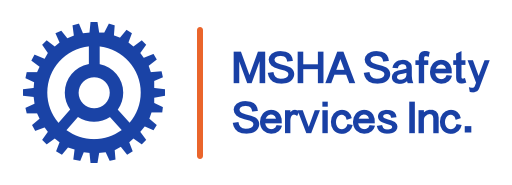When independent contractors step into the mining field, it’s not just about showing up—it’s also about playing by the rules. Navigating MSHA (Mine Safety and Health Administration) regulations can be a complex task, with unique responsibilities and compliance requirements for these essential workers.
In this article, we’ll clarify the MSHA training required for independent contractors and explore the compliance protocols they must follow. Unsure about your training requirements? Keep reading.
Do Independent Contractors Need MSHA Training?
Yes, independent contractors must adhere to MSHA regulations. This means they need to have up-to-date MSHA training. The regulations are designed to ensure safety and health in mining operations. This requirement extends to all individuals working on a mine site, including independent contractors. Under MSHA regulations, it is mandatory for independent contractors to be properly trained to handle the specific risks associated with their tasks.
What Kind of Training Do Independent Contractors Need?
The type of training required depends on the specific type of mine where the independent contractor will be working. There are two primary types of MSHA training: Part 46 and Part 48.
- Working at a Mine Covered Under Part 46: If the independent contractor is working at a mine regulated under Part 46, they need either new miner or experienced miner training. This training is essential if they are engaged in activities such as drilling, blasting, or maintaining mining equipment. Additionally, they must receive Site-Specific Hazard Awareness Training from the production-operator before starting work at each mine site.
- Working at a Mine Covered Under Part 48: For mines regulated under Part 48, contractors need comprehensive training similar to that required for new miners or experienced miners. If the contractor’s role involves specific hazards not covered by the standard training, they need hazard-specific training to address those risks.
Do Independent Contractors Need Both Part 46 and Part 48 Training?
No, independent contractors do not necessarily need both Part 46 and Part 48 training if their work is confined to one type of mine. However, if the independent contractor is working at a Part 48 mine, their training under Part 48 will generally encompass the requirements for Part 46 as well. This ensures that the contractor is equipped with the necessary skills and knowledge for both types of mining environments.
Do Independent Contractors Need an MSHA ID?
Yes, independent contractors do need an MSHA ID, a unique identification number issued by MSHA to individuals and entities involved in mining operations. This identification is part of the compliance process and helps ensure that all workers, including independent contractors, are properly registered and their training is documented. It is essential for maintaining safety standards and facilitating inspections at the mine site.

How Can an Independent Contractor Receive MSHA Training?
Independent contractors have several options for obtaining MSHA training. They can:
- Submit their own training plans and conduct their own MSHA-approved training program.
- Use an MSHA-approved cooperative program designed for contractors.
- Utilize the MSHA-approved training program provided by the mine where they are working.
These options provide flexibility and ensure that contractors can meet their training requirements effectively.
Understanding MSHA Training Requirements for Independent Contractors
In summary, MSHA regulations require independent contractors to have up-to-date MSHA training to maintain a safe work environment. If you work at a Part 48 mine, you don’t need separate Part 46 training, as Part 48 training covers all necessary aspects. Various training options, such as online courses from MSHA Safety Services, make compliance easier for contractors.
Independent contractors must follow MSHA regulations, including obtaining the proper training and MSHA ID. MSHA Safety Services offers online courses to help meet these requirements.

